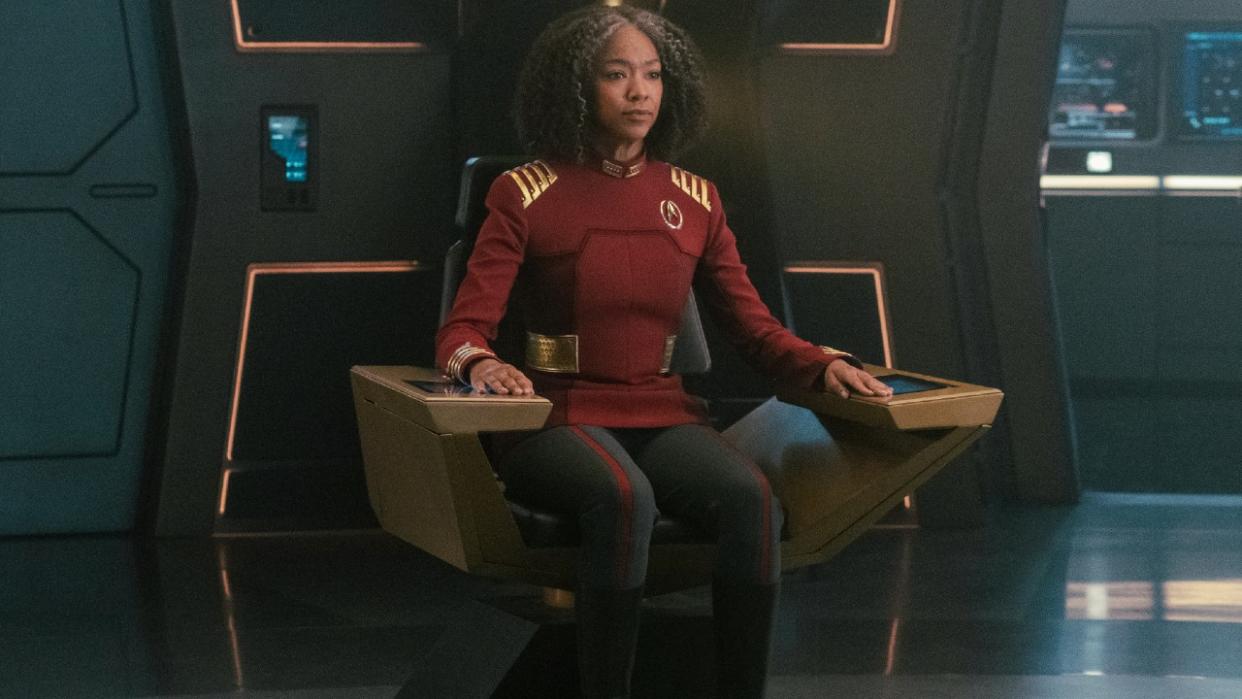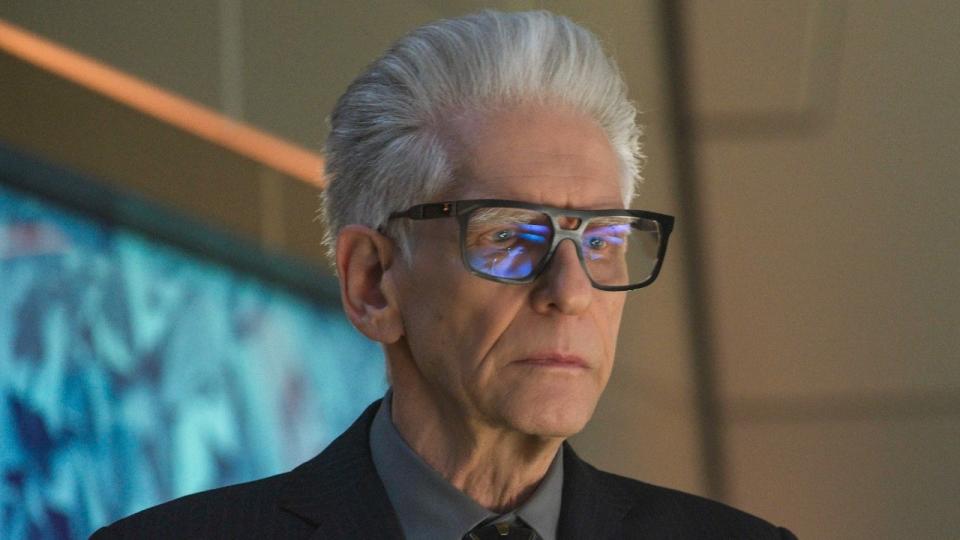Why Star Trek: Discovery’s Calypso Resolution Played Out The Way It Did In The Finale, According To Michelle Paradise

- Oops!Something went wrong.Please try again later.
- Oops!Something went wrong.Please try again later.
Warning! The following contains spoilers for the Star Trek: Discovery finale "Life, Itself." Read at your own risk! If you haven't caught it yet, check it out with a Paramount+ subscription.
Star Trek: Discovery's final scene addressed a long-standing mystery surrounding the series tied to the Short Treks episode "Calypso." Unfortunately, some fans have found they're not getting all the answers they want about how the mystery was resolved. I asked co-showrunner Michelle Paradise for details about how the scene was written and got her response about why the ending went down the way it did.
What's The Mystery Anyway?
In the short "Calypso," released between Seasons 1 and 2 of Discovery, viewers watched a man named Craft travel through the USS Discovery, which had been dormant in deep space for a thousand years. Fans have speculated for seasons now about how that was possible, particularly considering the crew arrived safely in the future at the start of Season 3. In fact, they were never away from the ship for any remarkable length of time.
In the Coda, we saw Michael Burnham, much older and now an admiral, enter the Discovery, which had been deliberately retro-fitted to look like it did in "Calypso." Burnham explained she had a "Red Directive" to take this ship to deep space and leave it there, but there wasn't much said beyond that. Assuming I missed something, I asked Michelle Paradise for clarification, only to learn the scene was intentionally scripted to be mysterious:
It was meant to be a little bit cryptic. Part of that is just in working on the coda we definitely wanted to address Calypso, but we didn't want to dive into the plot of things that we weren't ultimately going to see. It felt important not to use a pun, but of ‘paramount’ importance that the coda live in the world of emotion and wrapping up the story. And so it felt enough to us to say there's a Red Directive, the ship is gonna go rather than diving into the reasons why the ship was gonna go. Burnham is not ultimately gonna be part of that. She's gonna take the ship and leave it there. But we definitely wanted to tie up the Calypso piece of it.
Michelle Paradise confirmed in an interview with Variety that Season 6 of Star Trek: Discovery had a broad goal of addressing "Calypso" in detail, but obviously, the Trek series' cancelation came before they could get too deep into that. As such, the finale ensured that the answer was given while it was careful not to create more loose ends with the explanation.
Star Trek: Discovery’s Michelle Paradise Explains How The Finale’s Big Enterprise Easter Egg Came To Be

This Enterprise Easter egg was awesome.
The Star Trek: Discovery audience isn't explicitly told why the Discovery needs to be left in deep space without a crew, but we know from Season 5's plot that a "Red Directive" is a highly classified mission deemed of utmost importance. Briefings of Red Directives are conducted in Kovich's "Infinity Room," and given we now know Kovich was just a codename for the famed Temporal Agent Daniels from Enterprise, we can assume the USS Discovery must remain in deep space for reasons vital to the timeline.
Whether or not the mystery will be examined any further will depend on whether or not upcoming Trek shows want to acknowledge it. The Starfleet Academy show, which just brought on Holly Hunter, will be set the closest in time to Discovery's finale. Provided the show also brings on Tilly actress Mary Wiseman like the finale further hinted it would, I would see that as justification to further explain the Red Directive mission surrounding the ship at some point.
It might not be as neat of an ending as Star Trek: The Next Generation, but it's also worth noting the circumstances were different. I applaud Discovery for being able to end on the high note that it did. Making a conclusive finale on such short notice is difficult, especially for a serialized series. And yet, I think it is still one of the better finales in Star Trek history, and I felt just as much closure watching it as actor Doug Jones did.
Regardless, is it too early to start petitions for Paramount+ to greenlight a movie for this crew? I miss them so much already.

